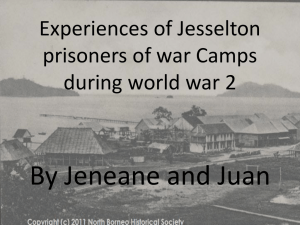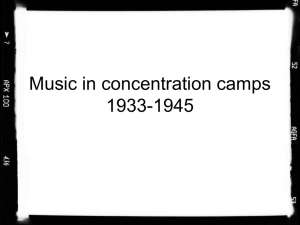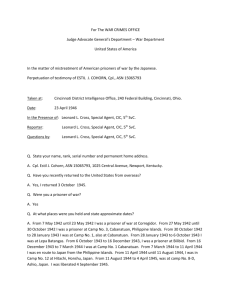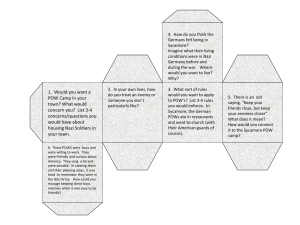Omori Main Camp Aka Shinagawa Camp
advertisement
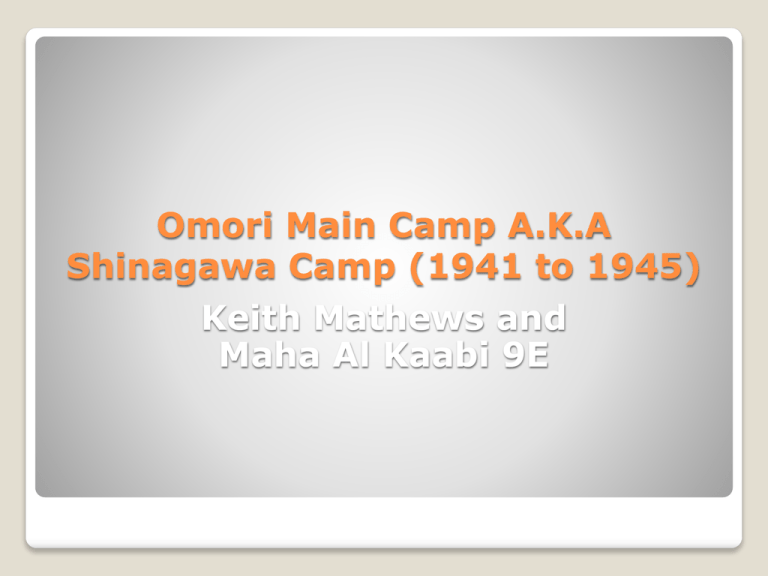
Omori Main Camp A.K.A Shinagawa Camp (1941 to 1945) Keith Mathews and Maha Al Kaabi 9E Located in Tokyo, Japan Camp Omori Most the prisoners taken captive were from the US. However there were others from England, Canada, Australia, Portugal, Italy, Netherlands and Estonia. A total of 606 prisoners stayed in camp Omori. An Average of 150 POWs every year. What duties did the prisoners have? Jobs were assigned in groups. "Cleaning up" the city of Omori adjacent the camp. Develop a garden area in Omori. Next to the railroad tracks on the TokyoYokohama rail sector. They were given no tools. “Honey Buckets” When they needed more supplies like fertilizer. They were given a 10 or 12-foot bamboo pole and a wooden bucket They had to gather human refuse. They then poured it into the trenches to serve as fertilizer. Extreme Hunger They were never allowed to eat any of crops that resulted. Extreme hunger caused some of the soldiers to violate the rule and severe immediate beatings by guards, if they were caught. Living Conditions in Omori Camp The Japanese did not abide by any human conventions nor was the camp monitored by the Red cross . The prisoners were humiliated and tortured. The living conditions were horrifyingly wicked. Prisoners died of abuse, malnutrition, neglect and other disorders. Their treatment as POWs was described as an "inquisitional form of barbarism." Death Rate Your chance of survival was 27%. Mostly one or two hours after being captured. Hap Halloran - POW Biography Born in the year 1922 and died very recently this year. He was from Cincinnati, Ohio. Mr. Halloran joined the Air Force because of his fascination with airplanes and travel, a lifelong interest. He also wanted to avenge the attack on Pearl Harbor. How did he end up in Omori Camp? ◦ He fought in Japan. ◦ Hap Halloran was moved from a lion cage at the Ueno Zoo to the Omori Main Camp. Initially, the Japanese captured him during an air battle when a Japanese fighter plane (Nick) came head on and critically damaged their plane. What he experienced in camp: The Japanese restricted him from eating any of the crops the he and his mates grew at the railroad. They were forced to dig the trenches and the vegetable patches without tools. He witnessed prisoners who were shot dead and buried. He suffered from many infectious diseases due to the unhygienic living and sanitary conditions. Thank You!


